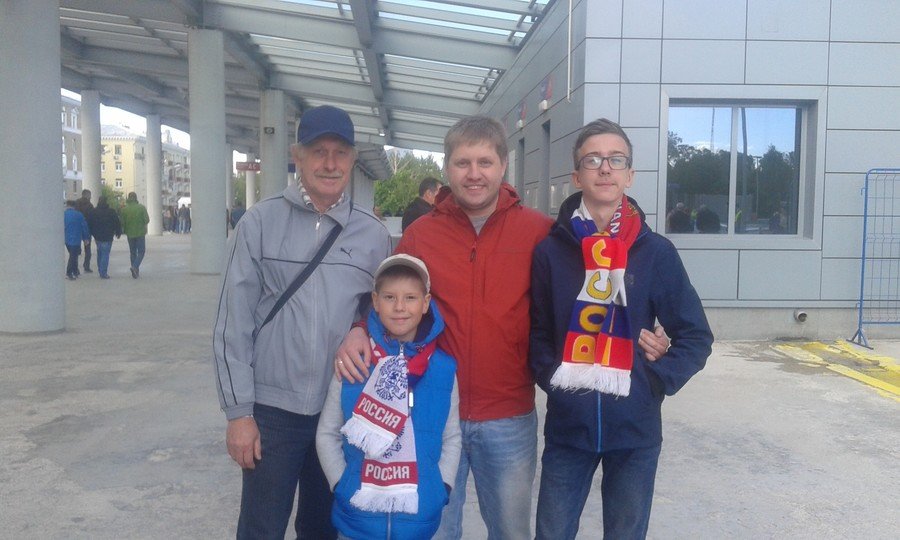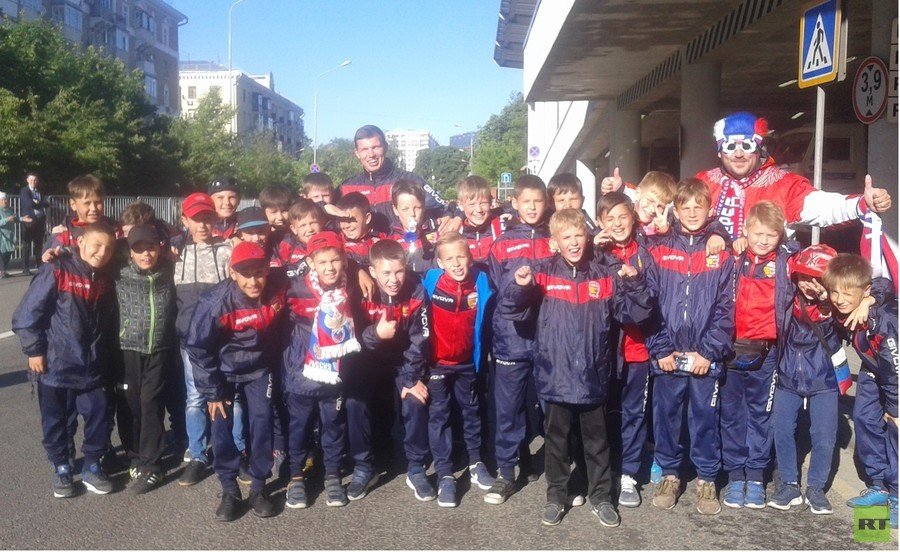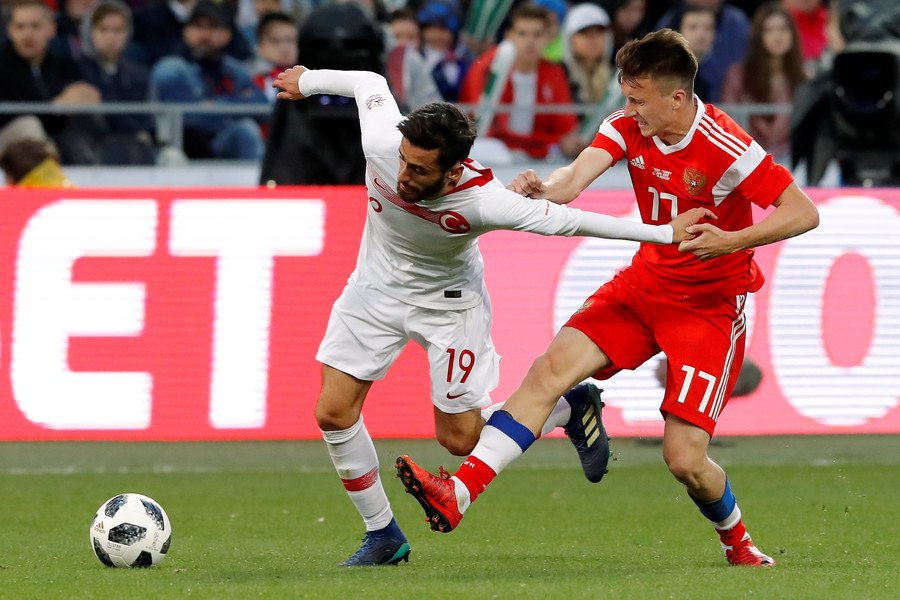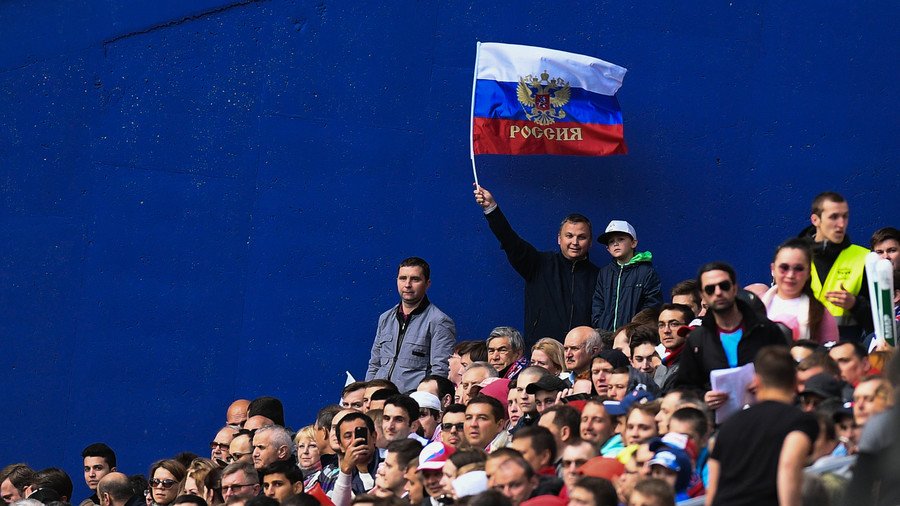News
Ordinary Russian football fans: The lesser-heard voices that will be loudest at the World Cup
Reading much of the Western press ahead of this summer’s World Cup, you’d be forgiven for thinking that every Russian football fan is a rabid hooligan desperate to kick the life out of anything that moves.
We’ve read about the threat to England fans from thugs desperate for a replay of Marseilles 2016, as well as the general nastiness supposedly lurking in store for anyone who dares to brave the trip to Putin’s hooligan-infested homeland.
Amid the mountain of scare stories, the least-heard voices are, ironically, the ones that will be the most abundant at the World Cup this summer – those of the thousands of ordinary Russian football fans.
READ MORE: ‘World Cup fans to discover the real Russia live and not from papers’ – UN ambassador
They are the supporters who will be backing their home team as well as welcoming the more than 1 million foreign fans expected in Russia.
They are the fans who made up the 25,000 or so who turned out to watch Russia in their final World Cup warm-up game against Turkey in Moscow on Tuesday, fans such as the three generations of the Grachyov family - Vladislav and his two sons Evgeny and Arseny, as well as their grandfather, Evgeny Sr.
Like the vast majority of their fellow Russian football fans, the Grachyovs are ordinary supporters who are excited about the World Cup kicking off in their country in a week’s time.

“We’ve waited for so long for this tournament,” Vladislav said. “First of all, it’s a chance to welcome many other nations to Russia, to show we are hospitable, and to show that we’re not always opponents, but also friends.”
His message to foreign fans coming to Russia is simple: “You are welcome here, support your teams, and if they don’t succeed, support the other teams you like!”
READ MORE: ‘This is our year - 2,400 miles is easy!’: England fans cycle to Russia 2018
Those sentiments were echoed by Artyom Somov, a football youth coach who was in Moscow with a team of 11-year-olds from Noginsk, a city around 60km from the capital.
He spoke of his young team’s excitement as Russia prepares to welcome stars such as Lionel Messi and Cristiano Ronaldo.
“We’re in a celebratory mood. We’re all footballers, so we’re really excited about this event, and of course we hope that our national team can show good results – the whole country will be supporting them.”

Artyom and his team watched on as Russia were denied a morale-boosting win on Tuesday, with Turkey equalizing in the second half of a game that ended 1-1.
That meant Russia head into the World Cup opening game against Saudi Arabia at Moscow’s Luzhniki Stadium on June 14 on a run of seven games without a win.
However, Artyom and his team are hopeful the team can at least get out of a World Cup group containing the Saudis, Egypt and main danger Uruguay.
“From Russia, I think a great result would be to get out of the group,” Artyom said. “I think at a home World Cup it’s within our power, despite the fact we’ve got a group with decent teams in it, I think our team has to get out of the group,” the young coach added.
READ MORE: 2018 World Cup: Leaving a legacy for Russia
When asked who would win the tournament outright this summer, many of the youngsters enthusiastically chanted “Russia,” before more rational voices prevailed to offer the more fancied choices of Germany and Spain.
For Artyom, however, perhaps even more important than the result for the national team is the effect the tournament will have on the development of youth sport in Russia.
“We really hope it will give a push for Russian football, so that youth sport will develop – most of all we hope for that,” he said.
“They’ve built a lot of wonderful stadiums for the World Cup, which I hope some of my guys will play at in the future.”

Many of Artyom’s team will be getting their first experience of watching a World Cup this summer, but most Russian fans have been waiting a lot longer to welcome football’s showpiece event to their country.
Alexander Kodakov is a seasoned supporter who has attended numerous national team games down the years, including traveling to the European Championship in Poland and Ukraine in 2012.
He’s excited that this summer will be his country’s turn to host a tournament on the biggest stage of all.
“We’re expecting euphoria. I went to the European Championship in 2012, I really liked it, so I’m expecting the same here for the World Cup,” Alexander said.
Like many of his compatriots, he will be traveling around his homeland for the World Cup, and will take in games in Ekaterinburg – where he will watch Senegal versus Japan – and in Kazan, where he will watch one of the quarter-final matches.
For Alexander – as for the young team from Noginsk – the tournament means a lot for football in Russia.
“It’s very important for the development of Russian football, we’ve built such great stadiums, I think it will boost our football.”
Cynics will dismiss flag-waving fans such as Alexander as unimportant, as something of a non-story that doesn’t feed the necessity of perpetuating the negative stereotypes many people have about Russian football fans.
That is not to say, of course, that Russia does not have problems with hooliganism, or that issues such as racism from supporters can be swept under the rug.
The scenes in Marseille two years ago when Russian fans clashed with English supporters were very real, and cannot be airbrushed out of history. And in a country as big as Russia, and at World Cup spread across 11 host cities, it’s impossible to rule out isolated incidents of violence.
But the Russian authorities are well aware of the threats, and have taken pains to ensure the nastier element from the fanbase, however small, does not surface at the World Cup this summer.
Both AP and Reuters have recently reported how potential troublemakers have been warned off causing trouble, while blacklists have been drawn up to ensure we do not witness the scenes of mass violence from that notorious summer in southern France.
READ MORE: Moscow hooligans blacklisted ahead of World Cup as police crack down
But the reality is that in Russia, just as elsewhere, the majority of fans love the game, support their team, and will treat the World Cup for what it should be – a month-long celebration of football.
Trying to paint them as a baying mass that will descend on foreign fans at every opportunity is doing a disservice to people such as the Grachyovs, young coaches such as Artyom, and veteran supporters such as Alexander.
“What they write about Russia is nonsense,” Alexander concluded. “Russian fans aren’t so aggressive, they’re normal people like everyone else.”
Even the cacophony of criticism in the Western press cannot drown out the voices of the millions of ordinary Russian fans who will help put on a fantastic party this summer.
By Liam Tyler for RT Sport


